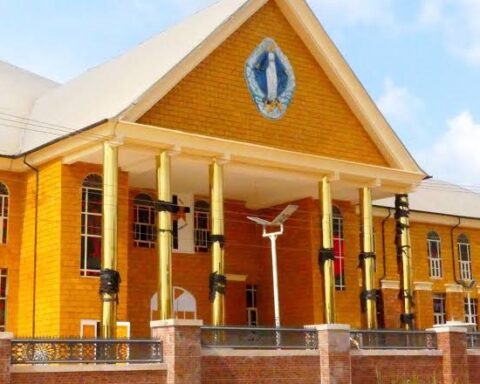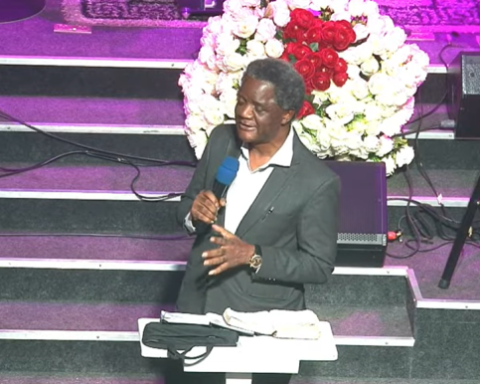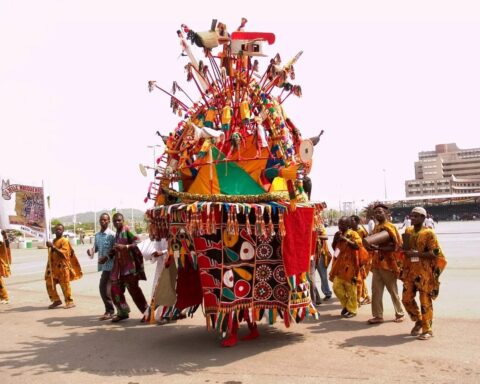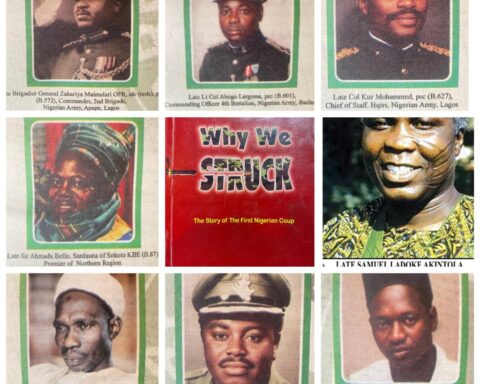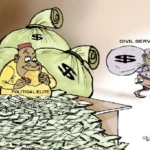“No ruler should put troops into the field merely to gratify his spleen; no general should fight a battle simply out of pique” – Sun Tzu
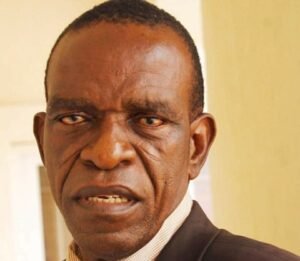
The ongoing altercation between the blustery Niger Delta militant leader, Alhaji Mujahid Abubakar Asari Dokubo, and the Nigerian military authorities caught my attention for interrogation this week. The acrimonious exchange is one of the many fallouts of the political fight going on between impatient political godfather Nyesom Wike and his awakened and politically triggered godson, Siminalayi Fubara, all of Rivers State.
The wrangle between Asari Dokubo and the military stands out among the adverse results of Rivers’ impasse because of the intriguing side-effects.
In the heat of the tension over the conduct of local Government elections in Rivers state, extraordinary security was beefed up in the state, all aimed at intimidating the state residents from coming out to vote. Among the many bravados shown by the security agencies were flying security helicopters around the state for aerial intelligence, among others.
Asari Dokubo is one of the heavy backers of Governor Fubara, whose quasi-security outfit could fit in easily following the Police withdrawal of security in the election in obedience to the strange order by the court. Dokubo’s house was mapped out for aerial surveillance, and the man did not like it and, in his boisterous manner, threatened that he would bring down the helicopter.
In a viral video, Dokubo claimed that two helicopters had been flying over his home and compound for over 30 minutes, an act he perceived as provocative from the government and the police.
“I can contain them,” Dokubo said in the viral footage. “I have never been afraid of death. I’ve always embraced death, so I am not afraid of death. I did not go and look for the helicopter to shoot them down. But I swear by Allah that I will shoot down the helicopter,” he threatened.
But responding to him, which many observed, was needless since he did not mention the military directly, the Defence Headquarters (DHQ), through their Director of Defence Media Operation, Maj Gen Edward Buba, challenged the former militant leader to come to the battlefield and be taken out.
He said: “Now, to comments by some individual that they can shoot down a helicopter of the military, I think that is laughable. He is just blabbing.
“I can tell you that he doesn’t have that capability he is boasting of, but we would allow the security forces that are responsible for handling such cases to take up the matter. Ours is come on the battlefield and we take you out. He should come on the battlefield and see whether we can react or not.”
The equally provocative utterances of the military were needless because Asari Dokubo was their creation. What the defense authorities should be asking is how they got to this point where a so-called ‘private individual,’ ‘an idle civilian’, to borrow the military term for civilians, should have the audacity to threaten to shoot down their helicopter.
Answers to such questions will help the military to know the extent to which they have derailed from their professional and constitutional duties to their motherland. If the helicopters hovering around Dokubo’s residence were owned by the military, should it be there at that time? Was the tension in Rivers state over local Government election not a creation of the federal government that gave wings to the disruptive FCT Minister? Why should the military dabble into such partisan politics?
Even with a deeper look into the federal government’s relationship with Asari Dokubo, is the nuisance he has become now not what both the government and military enjoyed in the past when they helped to enlarge his ego. Did he not help them in the gunmen mystery in the South East?
It’s sickening that in this country, the characters who were denigrated and vilified for their untidy past are today’s soldiers of fortune, occupying commanding heights in the polity, and they think it will not affect the system. The anti-state actors (militants) of yesterday who attacked government forces are today’s consultants in security matters and are “hired” to guard national assets. They are expected to succeed where national troops failed because of corruption.
If the military was up and doing, should yesterday’s criminals be hired to guard the nation’s main wealth, the oil? Was it not the government that raised their ego?
Was this the first time that Dokubo had boasted this way? Where was the military when he told the whole World in 2023 that it was his men that made the Abuja-Kaduna highway passable?
Nigerians and, indeed, security observers waited endlessly for the police, military, Department of State Services, and Nigeria Security and Civil Defence Corps to deny Asari Dokubo’s claim last year that his gang made the Abuja-Kaduna road passable. We can all recall how notorious the Abuja-Kaduna highway was, how even Military Generals avoided the route and embraced trains and airlines, and how even a Chief of Army Staff died in a curious plane crash while flying to Kaduna from Abuja, a distance of less than one hour by road. Generals and their families also languished in the forest for months in criminal dens as hostages, abducted in a train by the same criminals on that route. Is it not striking to hear, therefore, that some militants from South South ended the menace the military could not tackle?
What even gave Dokubo’s brag some boost was that he made it shortly after conferring with President Bola Ahmed Tinubu in Aso Rock Villa. For the military to suddenly remember that such a person is an individual is the height of double standards. Even during the presidential election tribunal, when the nation was caged in the tension of a rigged election and the military mobilized to the teeth to thwart any possible unrest, were Dokubo and his men not the only ones allowed to mingle with the security operatives to protest, abuse and threaten aggrieved politicians?. Because our memory is short in this country, why is the military trying to raise public sentiment against the man they empowered to fight the democratic process?
Which battlefront is the military boasting to be fighting, the ragtag Boko haram they have engaged in for over a decade with no victory in sight? What the Nigerian military should do sincerely is to embark on self-discovery and see where they derailed as a nation’s force. Was it not the same Nigerian military that saved nations like Congo, Liberia, and Sierra Leone that are today visibly undermined in their professional duties to their own country? Is it politics, corruption, or both that has significantly lowered the reputation of the once highly held army into a war of words with a militant once arrested and detained multiple times for alleged crimes, including treason?
Early this year, the Nigerian military lost 17 personnel, including top officers, in a feud between an illegal oil bunker and some sophisticated cartel of powerful illegal oil bunkers in the Okuama community in the Ughelli South Local Government area of Delta state. The truth that should be privy to the military right now is that the killed officers were not supposed to be there in the first place.
When you dine with the devil without a long spoon or with the witches and don’t have what they eat, you might end up as prey.
I think what Nigeria’s military needs to do as a matter of urgency is to embark on a journey of self-discovery. It is a process of understanding its true self: its values, its needs, and wants, and trying to discover its likes and dislikes. This will help them to become authentic to themselves and to even the citizens they serve and die for needlessly. The first step towards achieving this is to make a commitment to professionalism with a clear focus and action while prioritizing their needs.
In such internal reflection, the authorities should be re-evaluating core values and principles, assessing their operational effectiveness and efficiency, and looking at their strengths, weaknesses, opportunities, and threats (SWOT analysis). Their current leadership styles and command structures need to be quizzed to establish a culture of accountability and transparency
The objective of such self-discovery is to help the military rebuild trust with civilians and enhance operational capacity, defend historical legacies, and wholeheartedly cuddle innovation and technology for the task ahead, not challenging a civilian to meet a whole nation‘s army on the battlefield to crush him.
Watching the ongoing wars between Ukraine and Russia and between Israel, Hamas, and Hezbollah/Iran, I weep for my beloved country that cannot recover kidnapped persons within a city or a known forest but will be quick to monitor and grab a perceived enemy of the government or yahoo boys or naira spraying offenders. Corruption kills everything it touches, and Nigeria’s military is a victim and cannot grow with the global technology because their personnel are not left out in the wealth acquisition craze of this time in our society.
That Nigerian military personnel retired, and some serving are among the wealthiest in our society today, cannot be a good testimonial for the profession. People should not serve the country in the military and live and die poor, but not be at the forefront of wealth acquisition from the proceeds of corruption. Certainly, that was never the dream of a real professional Nigerian military who sacrificed for this country. God help us.

